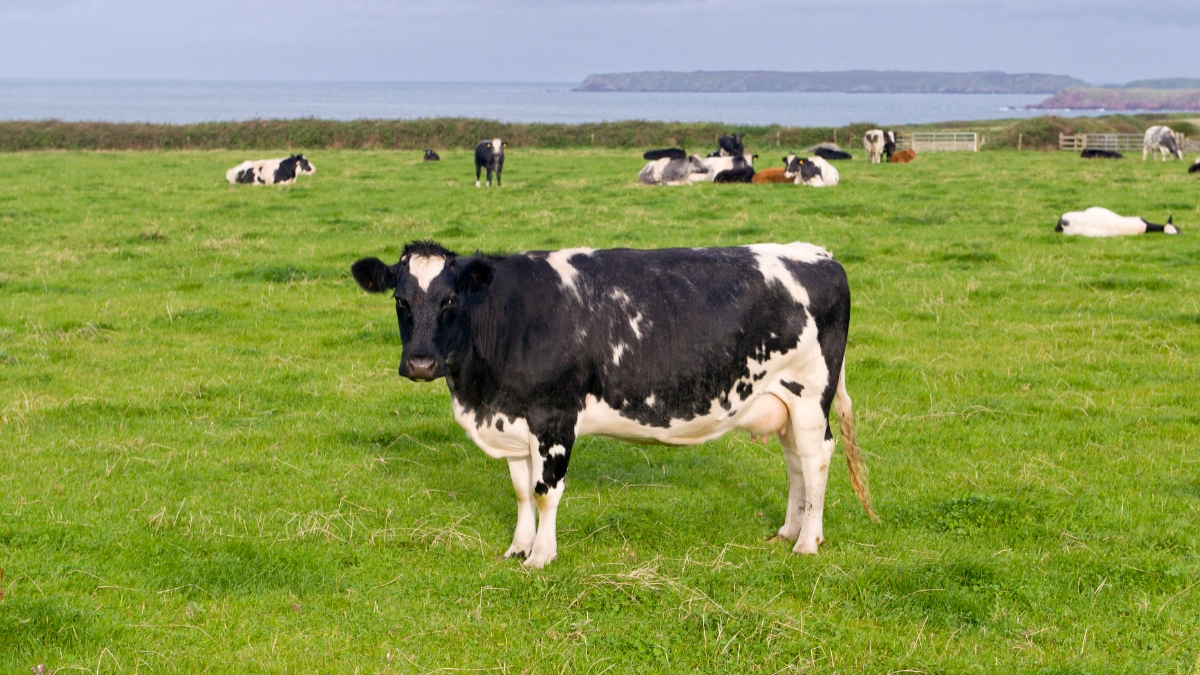A case of mad cow disease has been confirmed on a farm in Ayrshire.
The Scottish Government said “precautionary movement restrictions” have been put in place around the areas impacted after classical Bovine Spongiform Encephalopathy (BSE) was detected.
The disease was identified as a result of routine surveillance and stringent control measures, a spokesperson added.
They said the animal did not enter the human food chain.
Food Standards Scotland confirmed there is no risk to human health as a result of this isolated case.
Further investigations to identify the origin of the disease are ongoing as is standard procedure for a confirmed case of classical BSE.
Scotland’s agriculture minister Jim Fairlie said: “Following confirmation of a case of classical BSE in Ayrshire, the Scottish Government and other agencies took swift and robust action to protect the agriculture sector. This included establishing a precautionary movement ban on the farm.
“The fact we identified this isolated case so quickly is proof that our surveillance system for detecting this type of disease is working effectively.
“I want to thank the animal’s owner for their diligence. Their decisive action has allowed us to identify and isolate the case at speed which has minimised its impact on the wider industry.”
Scotland’s chief veterinary officer Sheila Voas added: “The fast detection of this case is proof that our surveillance system is doing its job.
“We are working closely with the Animal and Plant Health Agency, and other partners to identify where the disease came from.
“I want to reassure both farmers and the public that the risk associated with this isolated case is minimal. But, if any farmers are concerned, I would urge them to seek veterinary advice.”
NFU Scotland president Martin Kennedy, who will be attending Ayr County Show which is taking place on Saturday said: “While disappointing, and a huge concern for the farmers involved, the discovery of an extremely rare and isolated classical BSE case was always a possibility, and it is testament to the highly effective surveillance programme that we have in place that this case has been identified.
“Those affected by the case at farm level will be doing all they can to assist veterinary authorities in their investigations and any required tracing of animals. If NFU Scotland can assist those farmers affected in any way, then we are here to help.
“We welcome the robust scientific and veterinary advice issued clearly stating that, with strict controls already in place, there are no human health implications. That is hugely reassuring for all.”
What is Mad Cow Disease (BSE)?
Mad Cow Disease is the term commonly used for Bovine Spongiform Encephalopathy (BSE).
It is a disease found in cattle that attacks the brain, destroying it and leading to the death of the animal.
BSE may be passed to humans who have eaten infected flesh, causing fatal Creutzfeldt-Jakob disease.
The time from when an animal becomes infected to the time it starts to show symptoms of the disease is called the ‘incubation period’.
The incubation period for BSE is two to eight years. Once the animal becomes ill its health deteriorates until it either dies of the disease or is killed.
This can take any amount of time from two weeks to six months.
Most of the infected cows in the UK have been between four and five years old.
Follow STV News on WhatsApp
Scan the QR code on your mobile device for all the latest news from around the country


 iStock
iStock
























